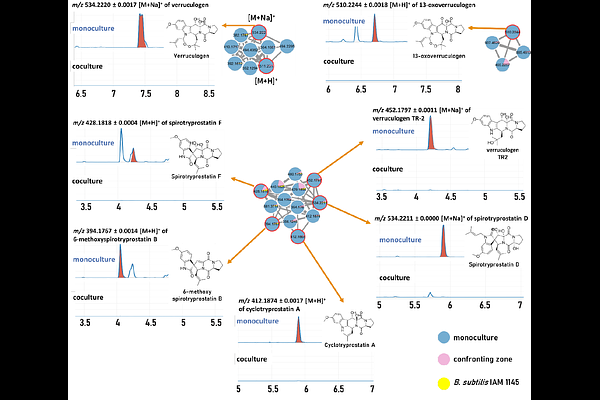Siderophores can alter the population dynamics of fungal-bacterial communities by inhibiting specialized metabolism

Siderophores can alter the population dynamics of fungal-bacterial communities by inhibiting specialized metabolism
Pham, H. T.; Kim, W.; Jang, J.; Kim, J. S.; Lim, Y. W.; Kovacs, A. T.; Kang, K. B.
AbstractSiderophores are microbial metabolites with a strong affinity for Fe(III) ions, in addition to other roles beyond iron acquisition. In this study, we propose that bacillibactin, a siderophore produced by the bacterium Bacillus subtilis, provides an advantage to its producer by inhibiting the specialized metabolism of antagonistic Penicillium fungi. Metabolome and transcriptome analyses indicate that iron deficiency caused by bacillibactin plays a critical role in downregulating the specialized metabolism of competing Penicillium species. Since many specialized metabolites of Penicillium spp. have antibacterial properties, we hypothesize that bacillibactin cross-protects other bacteria during fungal-bacterial community interactions. A tripartite coculture model demonstrated that bacillibactin production influences community dynamics by reducing the growth of specialized metabolite-producing Penicillium species, thereby facilitating the colonization of B. subtilis and other co-inhabiting bacterial species.